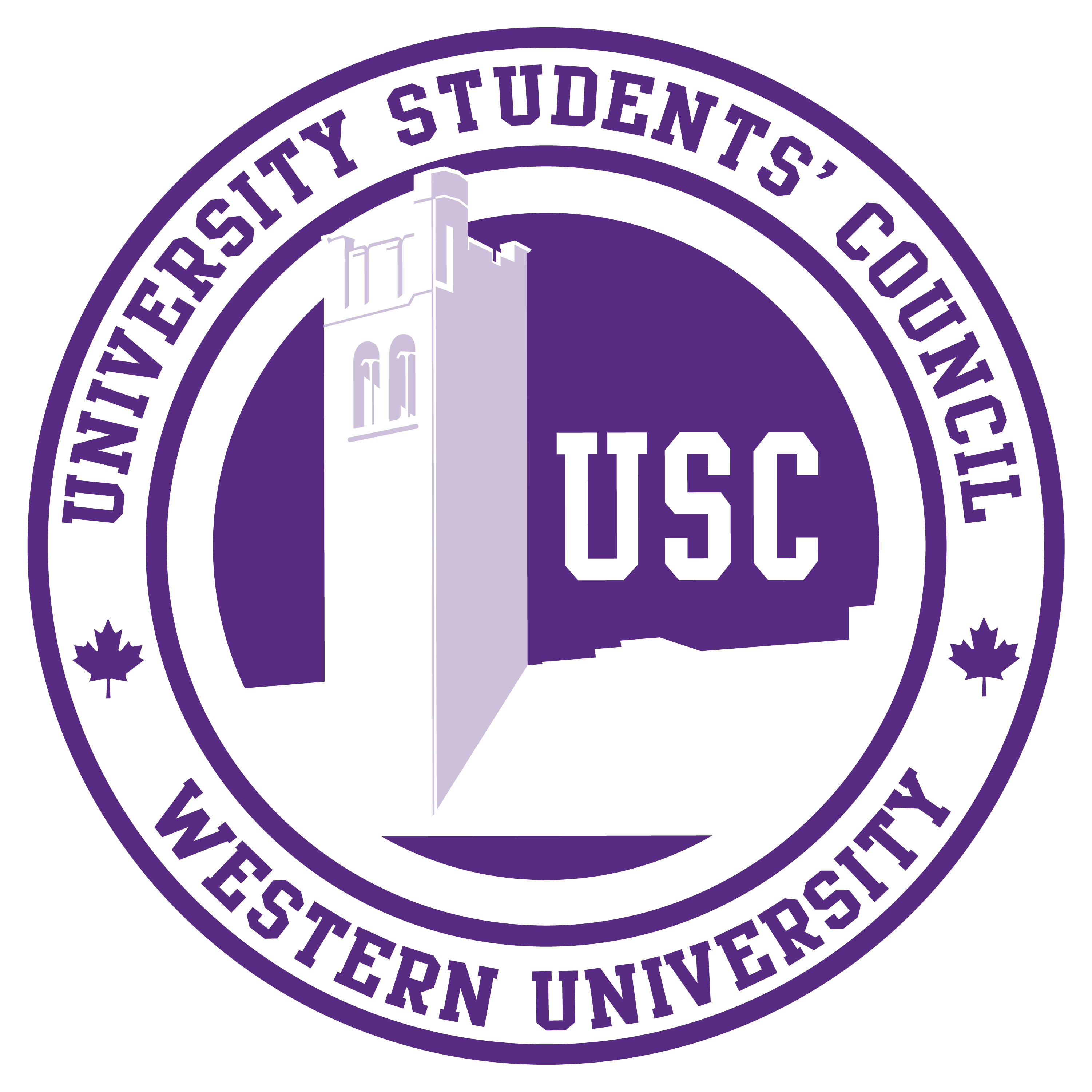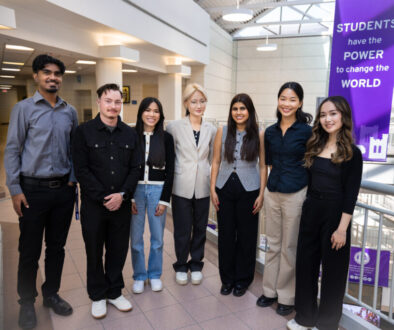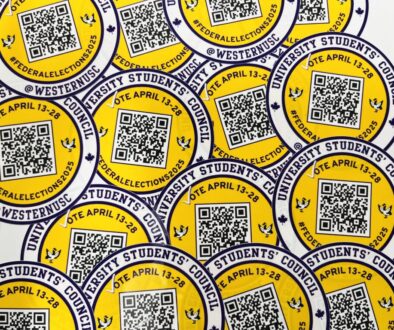USC Responds to Western University’s 2022-2023 Budget
Friday, April 29, 2022
Response RE: Proposed 2021-2022 Western University Operating & Capital Budgets
To the Undergraduate students, University Senate and Administration at Western University,
Over the course of the 2021/2022 academic year, our student body has navigated challenges related to ongoing waves of the COVID-19 pandemic, shifts between online and in-person learning, and the impact of our campus’ gender-based violence crisis. Though it has been a tumultuous year in many respects, the University Students’ Council (USC) has appreciated the work we have done in collaboration with the university to support students, prioritize safety and equity, and improve the student supports available on campus. Looking ahead, it is critical that we continue to work towards the many shared goals of the USC and the university to ensure the future success of our institution and particularly, our students.
Our budget submission process this year began in the Summer of 2021 when the Vice-President University Affairs (VPUA) began to identify themes that students and the USC wanted the university to prioritize in the upcoming budget planning process. This list was narrowed down to four themes: Racial Equity, Gender Equity, Sustainability, and Work-Integrated Learning. These themes were then presented to, and approved by, USC Council at the September meeting.
Following this, the VPUA underwent various meetings with university administrators to begin advocating for these themes to be prioritized and included in divisional budget plans. At the same time, the UA portfolio began conducting research and developing the specific asks within each outlined theme. The finalized specific budget asks within each theme were then presented and approved a second time at the October USC Council meeting.
With Council approval, the USC VPUA and President were able to outline the importance of these budget themes and specific areas of investment in a consultation meeting with Western’s Provost and budgetary team in late November. This dialogue was critical to the USC’s understanding of the university budget process and allowed us to present a set of final recommendations that were both student-facing and feasible.
We are pleased to see that the proposed 2021-2022 budget presented to the Senate last Friday, April 22nd highlighted investments in Racial Equity, Gender Equity, Sustainability, and Experiential Learning in alignment with student priorities. While we recognize not all of our asks were adopted in this budget, we appreciate the University’s engagement with the University Affairs Portfolio at the USC this year and hope to see more consistent adoption of student-facing priorities in budgets to come.
For the current budget cycle, the enclosed brief includes the USC’s formal response to the proposed 2021-2022 university budget. We recognize this budget as student-facing and appreciate the many Western administrators who engaged with the USC throughout this process and urge them to continue considering Western’s fundamental belief in creating, disseminating, and applying knowledge for the benefit of society in the execution of this budget and all other future-facing endeavours.
If you wish to review the USC’s final University Budget submission from November, you may do so here.
Sincerely,
Ziyana Kotadia
Vice-President University Affairs, 2021/2022 Academic Year
Racial Equity:
Supporting Faculty Hiring Focused on Equity-Deservering Groups
The USC is pleased to see the University’s commitment to racial equity, diversity, and inclusion reflected in the budget. We know that building a more inclusive campus requires attracting and retaining diverse faculty members who bring new and unique perspectives that challenge students. Last year’s budget allotment of $4 million to support cluster hiring aimed at recruiting Black and Indigenous faculty through the Provost’s Academic Renewal Fund (PARF) was a step in the right direction. This year’s one-time allocation of $25 million to create a PARF endowment that will provide permanent annual funding to support faculty hiring from assorted equity-deserving groups will ensure that Western has a long-term strategy to recruit and retain voices that have been historically underrepresented at the University. The USC looks forward to reviewing the long-range plan for the use of annual endowment income created by the Provost in collaboration with the Deans, as well as the efficacy of the investment more broadly in the years to come.
Scholarships for Black and Indigenous Students
The President’s Anti-Racism Working Group Final Report produced a recommendation endorsing the introduction of specific bursaries and scholarships for racialized students to make it more accessible for them to attend Western and to help ensure they do not encounter financial hardship while they are attending. We are proud to see the university has allocated a sum of $525,000 in this budget to support a new program of scholarships aimed at recruiting Black students and expansion of scholarships for Indigenous students and commend the new EDI Office for their work in making this possible. We believe that this investment reflects an appreciation of the intersections of race and class, and contributes to relieving the structural barriers which make post-secondary education inaccessible to many equity-deserving groups.
Gender Equity:
Menstrual Equity and “free the dot.”
We are very pleased to see the University commit to investing $800,000 over 2 years for the USC’s free the dot. free menstrual products program. Ensuring that menstrual products are free and readily available to students who need them is vital for creating a more equitable environment on campus and building a culture where menstruators feel empowered to move through spaces on campus with a sense of belonging. Providing these products in university bathrooms of all genders will help reduce the stigma surrounding menstrual products, reinforce the normalization of menstruation, and reduce barriers to education that menstruators experience. However, we would like to note that while this is a meaningful first step, the university must follow up this commitment with future, more fulsome investments in order to fulfill the USC’s recommendation that the University provides free menstrual products in all washrooms on campus. Western University has a duty to enact its value of gender equity and inclusion by offering these products in all washrooms free of charge, which both the University’s Gender-Based and Sexual Violence Action Committee Final Report and the USC’s Anti-Sexual and Gender-Based Violence Policy Paper have recommended.
Investing in Sexual and Gender-Based Violence Supports
The USC is pleased to see the University, in partnership with the Student Services Committee that our organization is a member of, support hiring two new staff positions in the Student Experience Portfolio, an additional GBSV support case manager and an additional GBSV prevention and education coordinator. Both of these new roles will improve the university’s capacity to support survivors and proactively develop student awareness of the fundamentals of GBSV prevention. This investment fulfills a recommendation in the USC’s Anti-Sexual and Gender-Based Violence Policy Paper and a recommendation of the University’s Gender-Based and Sexual Violence Action Committee Final Report. In the future, we would like to see the University further develop the support services available to students to better promote a consent-based and equitable campus culture.
Sustainability:
Carbon Emissions
Through their participation in climate strikes and other forms of political expression, undergraduate and professional students have made it clear that they hope to attend a Western University which is consistently seeking to reduce its carbon footprint. As such, we are impressed by the investment of $21.5 million in 2022-23 to support university-wide campus sustainability, energy conservation, and infrastructure projects aimed at reducing carbon emissions in campus operations. With this said, the University should be transparent with students on how this money is invested and what tangible steps are taken to reduce carbon emissions through these investments. In fact, the USC Sustainability Policy Paper recommends the University create and release a detailed plan outlining how it will achieve a minimum 45% reduction in greenhouse gas emissions from campus operations by 2030. Although we value the investments being made to help achieve Theme 3 goals from the recent Strategic Plan, we believe it is equally important that there is clear transparency and accountability in this journey to attain these goals.
Greener Campus Grounds
Due to losses of student lives in recent years, the USC continues to be concerned about the safety of our campus for pedestrians and students who wish to adopt greener mechanisms of arriving to campus (ie. walking, cycling and public transit). We believe it is imperative to simultaneously build a greener campus ground whilst fostering a safe environment for pedestrians and cyclists to navigate. As such, we are pleased with the prioritization of the Long Range Space Plan in the budget, and are hopeful the result will be a more sustainable and safe campus for students.
Work-Integrated Learning (WIL):
Undergraduate Student Research Internships
The investment in the Undergraduate Student Research Internship (USRI) program is commendable and aligns with advocacy the USC has been engaged in for several years. We have supported the USRI since its inception and are pleased to see a one-time allocation of $2.6 million to support the expansion of this program. We appreciate that the number of available student internships has increased by 50 spots from 310 to 360, as these internships provide employment opportunities for students, align with the University’s and the USC’s shared goal of ensuring we “integrate more fully the transformative social experiences of our students with other kinds of opportunities—such as the experiential opportunities of work-integrated learning [and] research with a professor.” We are excited to see this program grow and support its expansion in the future.
Future Opportunities
Although the USC appreciates the university’s investments in the USRI program, we are disappointed to see the USC’s recommendation that the University invest in creating a campus-wide framework for Work Integrated Learning was not addressed. As a key priority for the University and the USC, we strongly believe a University framework that clearly defines success and addresses barriers to student participation in WIL opportunities is important in order to ensure our students can access these meaningful experiences. In the future, we would like to see Western University allocate funding to implement a WIL framework and support the work of the Experiential Learning unit through further investments.
International Tuition:
In response to the tuition increases made during the 2020-2021 academic year, the cost of international tuition and affordability for international students has remained an advocacy priority for the USC at both the institutional and provincial levels as international tuition has continued to increase. Now in our third year of a global pandemic and witnessing the financial impacts it has had on many vulnerable populations, including students, the USC is disappointed to see the University propose increases of 8% and 4% for incoming and returning international students, respectively. One of the USC’s core values remains that post-secondary education should be accessible and affordable for all students, regardless of their country of origin. We believe that the university’s decision to increase tuition disregards the consistent concerns raised by the student body and ignores the sustained financial strain placed on the international student population through travel and quarantine restrictions, visa complications, and increased costs associated with extended stays for the duration of the pandemic.
Conclusion:
On the whole, the USC is pleased with the investments made into the undergraduate and professional student experience in the 2022-23 budget. With that said, we are growing increasingly concerned over the University’s overreliance on undergraduate tuition without more fulsome and proactive engagement with the broader student body on budget priorities and needs analyses. Currently, the majority of university revenue (~33%) comes from undergraduate students – more than from the provincial government or any other revenue source – and yet the only formal consultation the University has with student groups on the budget is the USC’s annual budget submission. Given that students’ dollars make up the majority of Western University revenues, yet students are consistently expressing dissatisfaction with various aspects of their student experience, we are hopeful that the University will make a more concerted effort in future years to determine student needs and use these as inputs as they build future budgets. To do this, we are hopeful the University will engage in a more robust, inclusive, and equitable budget consultation process with the USC, which provides opportunities for students to elevate concerns and recommendations.





